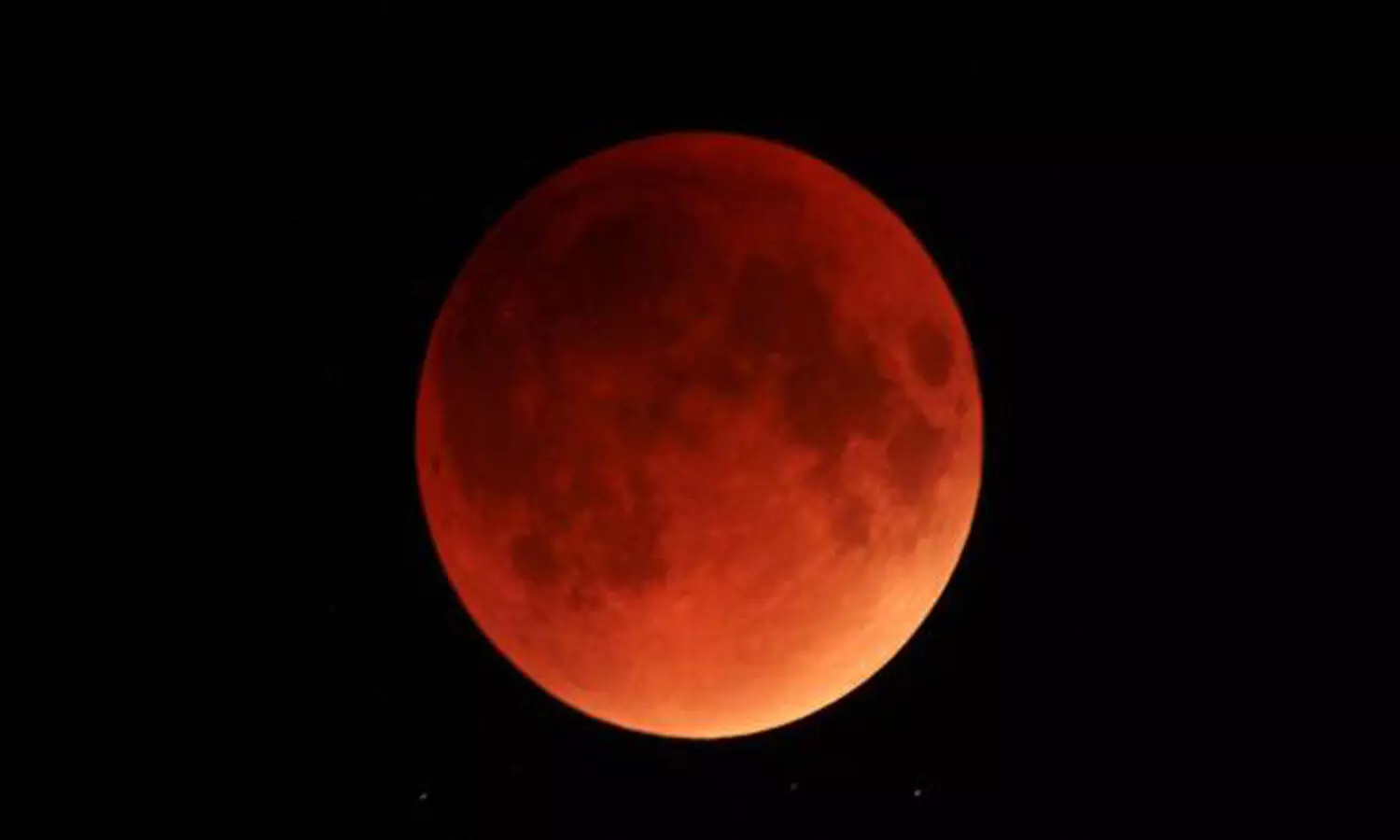TRENDING TAGS :
Lunar Eclipse and Holi Clash in 2024: What You Need to Know
The upcoming Penumbral Lunar Eclipse on March 25 coincides with the festival of Holi in India.
Lunar Eclipse
In a rare cosmic alignment, the upcoming Penumbral Lunar Eclipse is set to coincide with the vibrant festival of Holi on March 25, 2024. This celestial event, where the moon briefly enters the Earth's shadow, adds a unique dimension to the traditional revelry of colors. As anticipation builds, many are wondering how this astronomical occurrence might impact the joyous celebrations of Holi across India.
The Penumbral Lunar Eclipse occurs when the Earth, Sun, and the Moon align perfectly, causing the Earth's shadow to cast a subtle veil over the lunar surface. This celestial ballet is not only a visual spectacle but also an astronomical phenomenon that captivates sky gazers and enthusiasts alike. However, this year, the cosmic display takes center stage on the same date as the widely celebrated festival of Holi.
Scheduled to commence at 10:23 AM and conclude at 3:02 PM on March 25, the eclipse, unfortunately, won't be visible in India. The sutak period, traditionally observed during lunar eclipses, involves restrictions on auspicious activities. Fortunately, since the eclipse won't be visible in India, the sutak period is not applicable, allowing for the uninterrupted observance of Holi rituals and festivities.
The lunar eclipse will be visible in various parts of the world, including Ireland, Belgium, Spain, England, South Norway, Italy, Portugal, Russia, Germany, the United States, Japan, Switzerland, Netherlands, and France. While these regions prepare for a celestial spectacle, Indians can enjoy Holi without any concerns related to the sutak period.
As the lunar eclipse unfolds in the skies of distant lands, Holi celebrations in India remain unaffected. The clash of dates does not cast a shadow on the joyous atmosphere of the festival. People can participate in the vibrant traditions, play with colors, and partake in the joyous revelry without any astronomical inhibitions.
This unique convergence of a celestial event and a cultural celebration sparks curiosity and wonder among enthusiasts worldwide. The intersection of science and tradition brings attention to the diversity of cultural practices and the cosmic wonders that continue to captivate human imagination.
While the Penumbral Lunar Eclipse promises to be a captivating celestial event, its occurrence on the same day as Holi adds an extra layer of fascination. Fortunately, the celestial alignment won't dim the colors of Holi in India, and the festivities can proceed without any cosmic interruptions. It's a reminder of the intricate dance between the celestial bodies and the cultural richness that makes festivals like Holi truly special.



